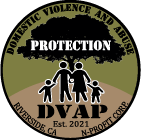Leaving an abusive relationship is one of the most challenging and courageous steps someone can take. While friends and family want to help, some comments or questions—even when well-intentioned—can do more harm than good. Understanding what not to say can make a world of difference in offering meaningful support.
If you’re supporting someone on this brave path, this blog will guide you on what to avoid saying and why, while offering insights into better alternatives.
Why Words Matter in This Situation
Leaving abuse isn’t just about walking away. It’s an emotional, logistical, and psychological process often tangled with fear, love, guilt, and uncertainty. Words of support should respect this complexity rather than oversimplifying or judging the person’s experiences.
What we say can either validate their feelings and empower them, or it can alienate them and deepen their guilt or shame. Recognizing what phrases to avoid is a crucial step in becoming a supportive ally.
1. “Why didn’t you just leave sooner?”
This question may seem logical, but it’s deeply invalidating. It can make the survivor feel judged or foolish for staying as long as they did. The truth is, leaving an abusive relationship isn’t as simple as walking out the door. Survivors face barriers such as financial dependence, fear of retaliation, manipulation, societal stigma, or even love for their abuser.
A better way to respond:
Instead of questioning their timeline, say, “I’m so proud of you for taking this step. I’m here for you however you need.”
This acknowledgment emphasizes their courage and reassures them they aren’t alone.
2. “I would never have put up with that.”
Statements like this create a sense of comparison and can make the survivor feel weak or stupid. Abuse often involves psychological manipulation that outsiders don’t see, including gaslighting or emotional dependence. Survivors don’t need to hear what someone else may or may not have done in their place.
A better way to respond:
Try saying, “It’s not your fault. The important thing is that you’re out, and that’s what matters now.”
This approach avoids judgment and reinforces that they made the right choice by leaving.
3. “You’re so lucky you got out.”
While this may come from a well-meaning place, it inadvertently minimizes the pain and struggle involved in surviving abuse. The word “lucky” makes it sound like their escape wasn’t a result of bravery, planning, or resilience. It also doesn’t acknowledge the potential danger survivors still face post-separation, such as stalking or harassment.
A better way to respond:
Say, “You’re incredibly strong for leaving. I admire your strength.”
This reinforces their agency and validates how much courage it takes to leave.
4. “Do you think you might go back?”
For someone who has just left an abusive relationship, this question can feel like a presumption that they haven’t made up their mind. It can also unintentionally plant seeds of doubt or guilt over their decision to leave.
Instead, focus your attention on reinforcing their decision and offering strength.
A better way to respond:
Say, “If you have any doubts, remember how much you deserve to feel safe and respected. You made the right choice.”
This frames the conversation in a way that bolsters their confidence in the decision.
5. “It’s time to move on now.”
It’s natural to want someone you love to heal and move forward. But healing from an abusive relationship takes time, and survivors shouldn’t feel rushed or pressured. Statements like this can come off as dismissive and imply that their pain or trauma is no longer valid.
A better way to respond:
Offer patience with a simple, empathetic phrase like, “Take all the time you need to heal. I’m here for you whenever you need.”
This gives them permission to take their recovery at their own pace.
6. “What did you do to make them angry?”
This is one of the most harmful things you can say, as it places blame on the survivor instead of holding the abuser accountable for their actions. No one deserves abuse, and asking this shifts responsibility to the victim for something entirely out of their control.
A better way to respond:
Instead, affirm their innocence by saying, “Nothing you did justifies their behavior. The abuse was not your fault.”
This helps counter their internalized blame, which is often a result of manipulation by the abuser.
7. “That doesn’t sound like them.”
If you’ve known the abuser personally, it might be shocking to hear how they’ve acted behind closed doors. However, expressing disbelief can make the survivor feel unsupported or invalidated in their experience.
A better way to respond:
Say, “I had no idea this was happening. Thank you for trusting me with your story. How can I support you?”
This response centers on the survivor’s courage in speaking up and shifts your focus onto actionable support.
How You Can Support Someone Effectively
- Validate Their Feelings: Acknowledge their emotions, whether they’re feeling sad, angry, relieved, or something else entirely.
- Offer Practical Help: Ask if they need assistance with things like finding housing, legal advice, or therapy. Sometimes, even small gestures like accompanying them to an appointment can mean the world.
- Listen Without Judgment: Sometimes, just holding space for them to talk freely can be more powerful than offering advice.
If you’re not sure what to say in a given moment, a simple “You’re not alone, and I’m here for you however you need” is always a safe and supportive choice.
Moving Forward
Supporting someone leaving an abusive relationship isn’t always easy, but your empathy, understanding, and thoughtful words can make an enormous difference.
If you or someone you know is struggling to leave an abusive situation, consider reaching out to local resources or support groups. Recovery takes time, but with a strong support system, it’s entirely possible.
Disclaimer: This blog post provides general information about domestic abuse. It does not provide legal advice. Victims should consult with a legal professional for advice related to their specific situation.
Are You Experiencing Domestic Violence or Abuse? DVAP Is Here To Help
Domestic Violence and Abuse Protection, Inc. is a non-profit organization committed to protecting the victims of domestic abuse. When restraining orders are not enough, we are there to provide the determined protection you deserve. We are located at 3900 Orange St. Riverside, CA. Call us at (951)-275 8301 (24 hours). Alternatively, you can email us at admin@dvapriverside.org






